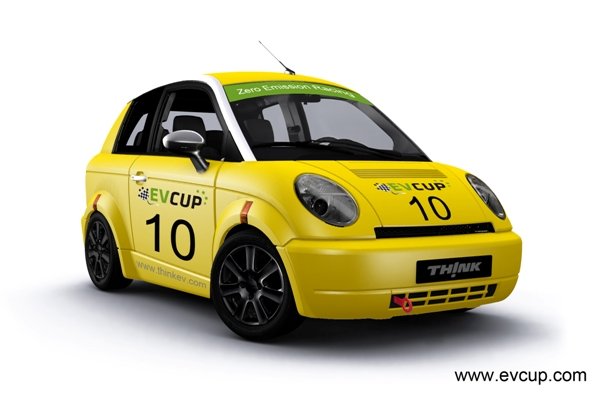 Even the electric breed
Even the electric breed
Somehow, we have missed this until now. In 2009, the forward looking EV Cup was created in the United Kingdom with the idea of racing full electric, zero emission electric cars. The idea is the promotion of EVs as not only real cars, but fun to drive vehicles that offer performance as well as ecological benefits.
EEVRC Ltd was created to introduce and operate this new racing series. Directors Sylvain Filippi and Andrew Lee have electric car backgrounds while Race Director Grahame Butterworth provides the motorsports experience. Mr. Butterworth’s experience covers a broad range of racers from karts to the largest racing series in the U.K. He also grew the Fun Cup, an affordable endurance racing series featuring identically race-prepared Volkswagon Beetles, into a successful Championship campaigned in the U.K., Belgium, France, Italy, Germany and Spain. All this as prelude to the idea that these gentlemen might actually know what they are doing.
2010 offered promotional events in the UK and Europe to create awareness of the series to come, and the electric vehicles themselves. There are currently four races scheduled for 2011 with the possibility of additional races, perhaps including one in the United States. Initially, it is envisioned that three classes of vehicles will be raced – City, Sports and Prototypes. The THINK City EV above is an example of the City class. The Sports class will offer up one of the first sports cars designed to be an EV – the Westfield iRACER. Look for the production version to be announced at Geneva on March 1. Westfield is known for their roadster, available as a kit or fully produced roadcar, which they have been producing since 1983.
Technical specifications to date include a lithium ion battery pack and two 40 kilowatt electric motors producing peak power of 200 horsepower. More impressive is the 1,000 Nm of torque (over 737 foot-pounds). The chassis is aluminum with composite, aluminum and plastic body panels. Operating range is currently expected to be in the 50-60 mile range.
Prototypes will offer manufacturers the ability to showcase their developmental skills in the EV arena.
If you are wondering why we are even writing this article, the reason is to show that in this (modern) embryonic automotive field, innovation is already starting to take place that can provide direct benefit to future road going EVs. Improvements in strength, lightness, and range will benefit your daily commuter as research applied to these vehicles ultimately makes its way into production. Gentlemen, start your electric motors.

